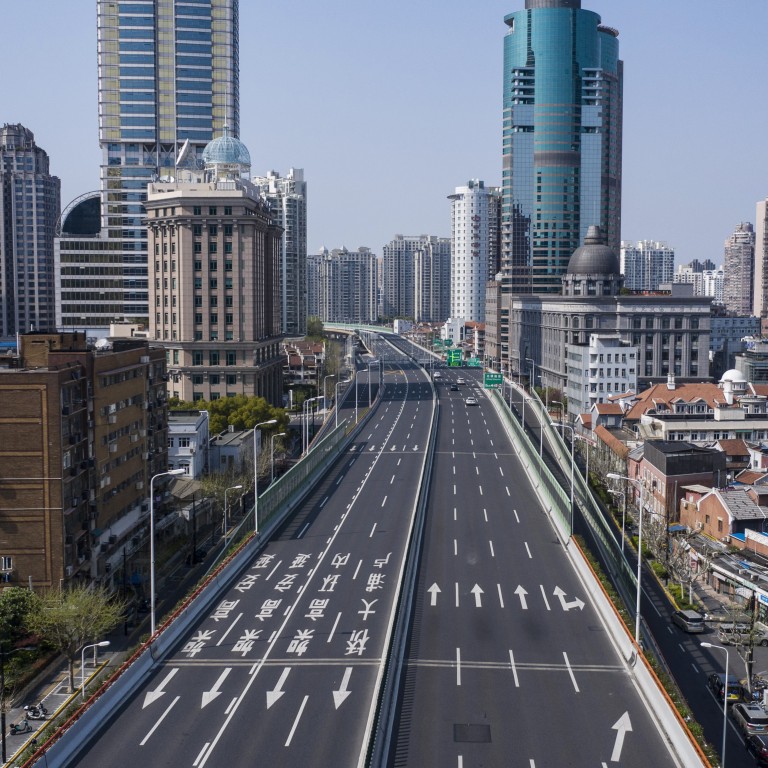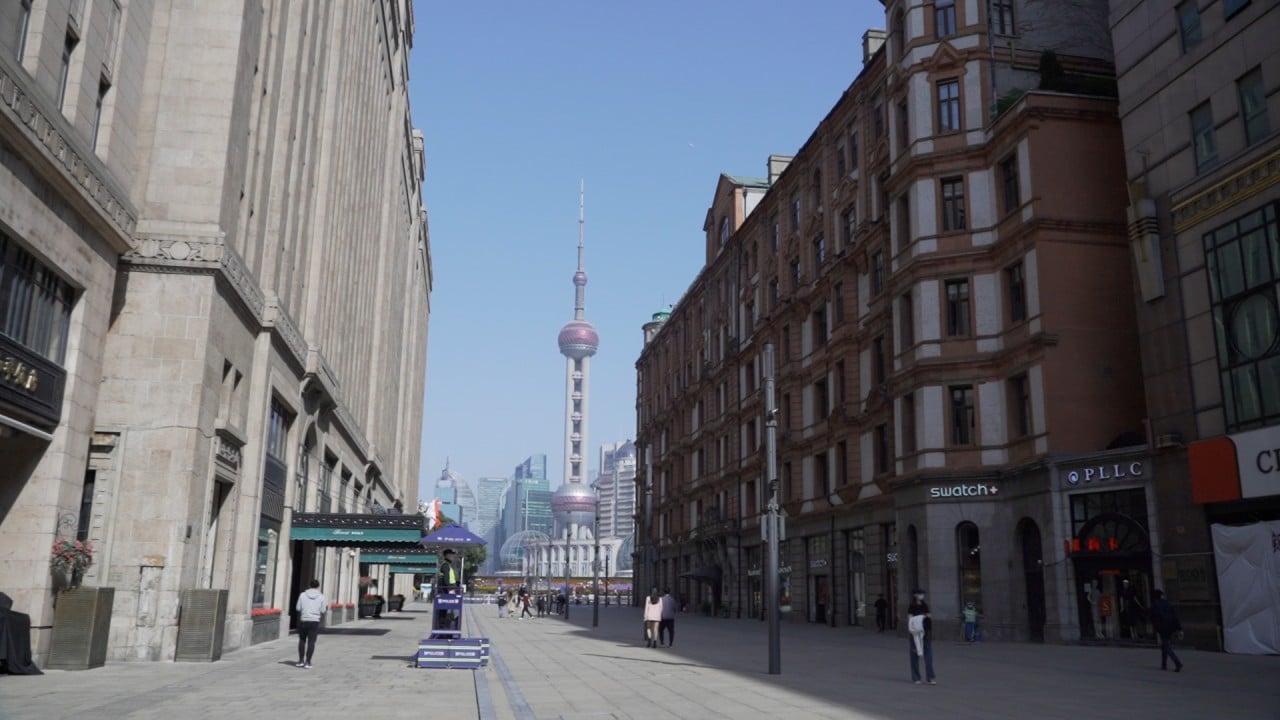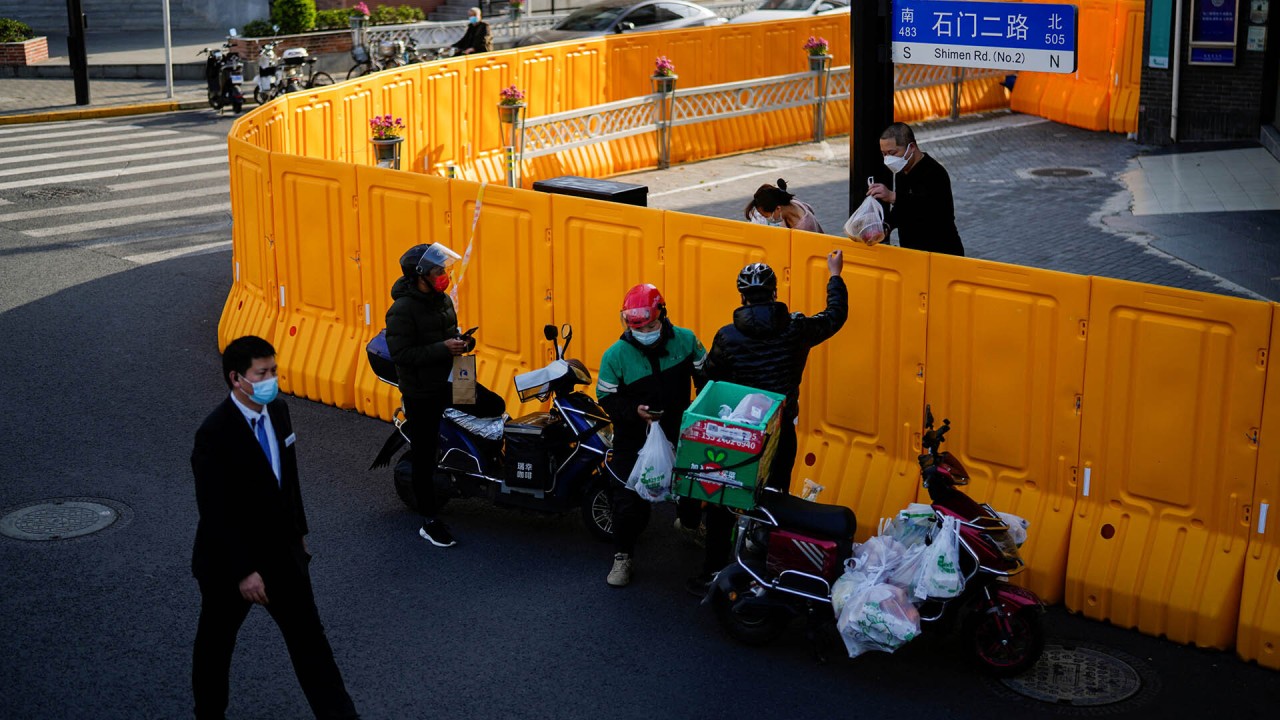
Shanghai lockdown: ‘China put’ in play as foreign funds buy Moutai, China Tourism stocks amid calls for rate cuts, fiscal boost
- Foreign funds scoop up A shares, banking on official backstop, or so-called ‘China put,’ to prop up the market and sliding economy
- Lockdown in Shanghai has widened to affect other tech and car-making hub in Kunshan, putting Beijing’s 5.5 per cent GDP target at risk
Turnover on the Shanghai Stock Exchange since the citywide curbs since March 28 averaged 379 billion yuan (US$59.5 billion) a day, about 3 per cent below the three-month daily average, according to official data. The Composite Index, which tracks 2,076 companies, gained 1.2 per cent over the same period, while the Hang Seng Index climbed 2.2 per cent.
Despite heightened concerns about earnings and growth setbacks, foreign investors have surprisingly been net buyers, scooping up 16.3 billion yuan (US$2.6 billion) of A-shares since March 28, according to Stock Connect data. That compares with 65.9 billion yuan of net selling in three weeks preceding the lockdown.
Their biggest bets during that period included the nation’s most-valuable company Kweichow Moutai, China State Construction and China Tourism Group Duty Free, according to Stock Connect data.
Chinese top officials including Premier Li Keqiang have pledged to support the market and deploy a variety of policy tools to aid industries hit by the pandemic. Analysts at banks including Goldman Sachs and Citic Securities predict Beijing will deliver rate cuts and fiscal spending amid doubts over its 5.5 per cent growth target for the year.
“China’s combat against the current outbreaks may last longer than the market has priced in,” Sima Jing, China investment strategist at BCA Research in Montreal. “In the near term, the lockdowns will weigh down the effectiveness of the stimulus. In the second half of the year, the more contagious virus mutations and China’s sticking to zero-Covid strategy may lead to more frequent disruptions to business activity.”
Citic, the nation’s biggest publicly traded brokerage, said the economy likely grew 4.6 per cent last quarter, with the pandemic lopping off as much as one percentage point off growth. GDP slowed to 4 per cent in the final quarter of 2021 from 4.9 per cent in the previous three months.
More tax breaks for sectors including retailing, catering and logistics could be on the cards, while direct subsidies to service-industry staff and easier financing access for developers are among possible incentives, Citic Securities said in a report.
“Pessimistic expectations about the economy have already reached the extreme,” said Qiu Xiang, a strategist based in Beijing. The negative impact is receding and “there is a big chance that the economy will trend up in the second quarter,” he added.
Shenwan Hongyuan Group, a Shanghai-based investment bank, shared the same view. The firm recommended buying into coal producers, property stocks and other cyclical companies this quarter as they stand to profit from impending pro-growth policies.
“Markets are likely to stay volatile due to external factors,” Tham of UOB KayHian said. “But we opine that there are further legs to the relief rally with the easing of Covid-19-related restrictions, further roll-out of reflationary policies.”



